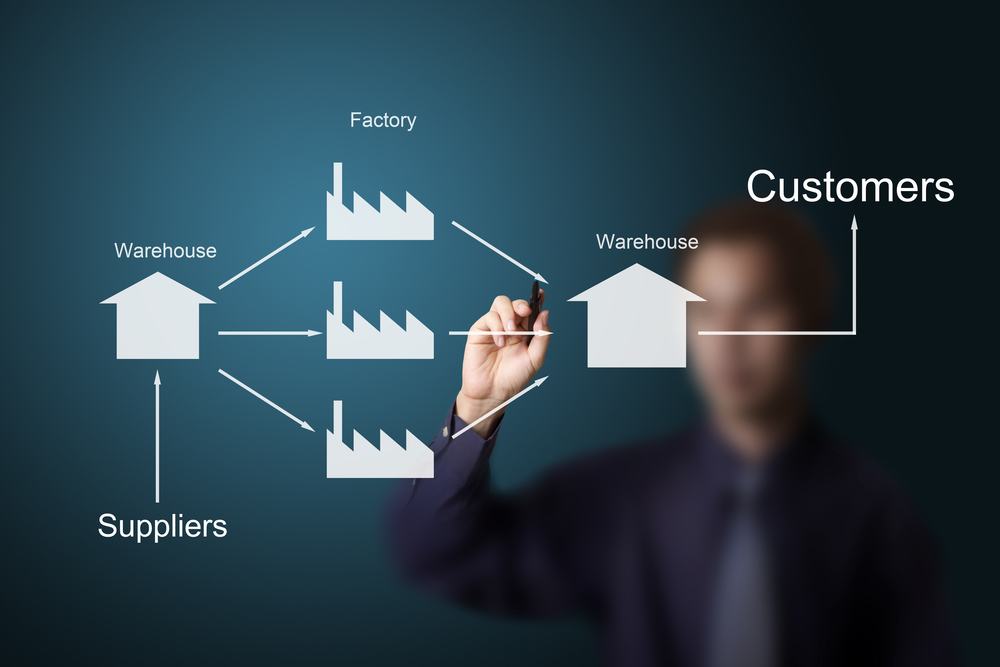While many industries have suffered because of the pandemic, the demand for faster, more efficient, and more intricate supply chains has only increased in the COVID-19 economy. Consumers increasingly purchase goods online and expect delivery to their doorsteps, and developers can’t build warehouses fast enough to meet burgeoning storage and shipping demands. Meanwhile, many companies struggle managing supply chain costs while still delivering goods quickly and efficiently.
The challenges of the COVID-19 economy are constantly evolving. But companies can keep supply chain costs low, stay competitive, and thrive by implementing these best practices:
Optimize Warehouses Efficiencies
Warehouses are an integral part of any supply chain. For companies that operate warehouses, effectively managing supply chain costs can start here. Running warehouses with a hundred or more employees can cost millions of dollars annually in salaries and wages. Lowering logistical costs means finding ways to maximize warehouse operating efficiencies.
Automation and the judicious use of technology can help reduce warehouse costs. Implementing automated tools like self-driving forklifts, robots, and conveyors ensures a smoother flow of product and reduces human error. Even small, energy-saving technological improvements, like installing movement-sensing lights, can add up to significant savings in the long run.
Utilizing durable, recyclable, plastic pallets in warehouses can also help businesses manage warehouse costs. Wood pallets have a shorter shelf life than plastic pallets, and can shed splinters, sawdust, and debris that make workspaces slippery and foul equipment. This can require clean up time and labor that could be better spent on production or logistics. Unlike plastic pallets, wood pallets are held together with metal such as nails and staples. These parts can break off, jamming gears and conveyors, significantly delaying production or shipping.
Shorten Shipping Distances
Shipping fees dramatically increase the further businesses transport goods. Greater shipping distances result in goods traveling through more shipping zones and higher shipping fees. They also involve higher labor and fuel costs for companies that engage in shipping directly, as vehicles and employees are in transit longer.
Investing in good forecasting software to fully understand challenges like seasonal peaks, changes in shipping demands, and transportation issues can help businesses streamline their shipping process, avoid unnecessary expenses, and better manage supply chain costs. Partnering with companies that have multiple fulfilment centers throughout shipping zones, as well as competitive shipping rates, can also help control logistical expenses.
Reduce Shipping Weight
This greenhouse gas calculator demonstrates how small reductions in transport weight can make a big difference in reducing a company’s greenhouse gas emissions. But reducing shipping weight can also play a significant role in managing supply chain costs. Simply put, more weight requires more fuel to push the heavier shipping loads, resulting in higher fuel costs.
One very effective way to reduce weight in a supply chain is by using lightweight pallets for shipping. Wooden pallets are heavy and can add unnecessary pounds to loads. Plastic pallets, by contrast, can be up to 35 percent lighter.
Hire a Pallet Pooling Company
Businesses that operate warehouses can also consider engaging a pallet pooling company, instead of buying and managing their own supply of shipping pallets. Companies that do buy and manage their own pallets are essentially operating two separate businesses, as well as a parallel supply chain, just to provide their warehouse products with a shipping platform. This can add unnecessary labor, management, and operating expenses to supply chain costs.
Renting plastic pallets from a pallet pooling company ensures that a supply of pallets in good repair and ready for use arrives at your facilities when needed. The company will also arrange for the used pallets to be taken to other companies or back to your other facilities if required. A pallet pooling service provider takes care of the reverse logistics throughout the supply chain needed to recover these pallets for reuse by you or other manufacturers. This saves your company from having to manage its own pallet supply, and reduces the complexity of pallet procurement, management, and recovery, reducing waste along with your Total Cost of Business (TCOB). Pallet pooling can be a very effective tool in managing supply chain costs.
As demand for faster and more efficient supply chains continues to grow, businesses need to find new ways to reduce logistical costs. Implementing these best practices for managing supply chain costs enables companies to stay competitive in a challenging and constantly evolving market.
Companies can keep their supply chain costs low by using iGPS plastic pallets for all their shipping needs. Our pallet pooling program helps lower fuel expenses and reduces Total Cost of Business. For more information, contact us at 1-866-557-0047, email a specialist at switch@igps.net, or visit our contact page.



